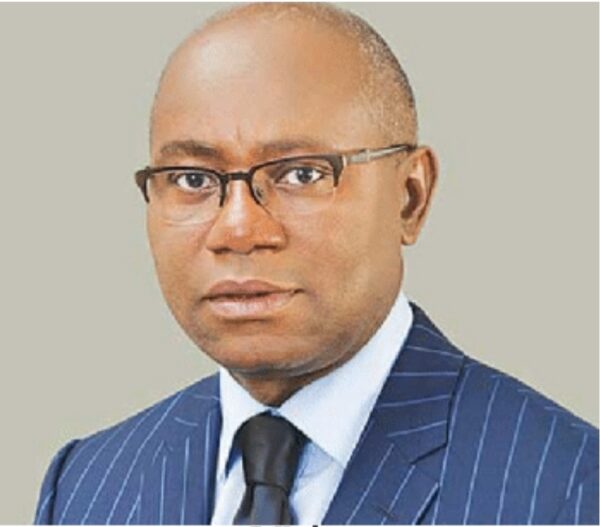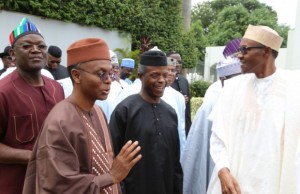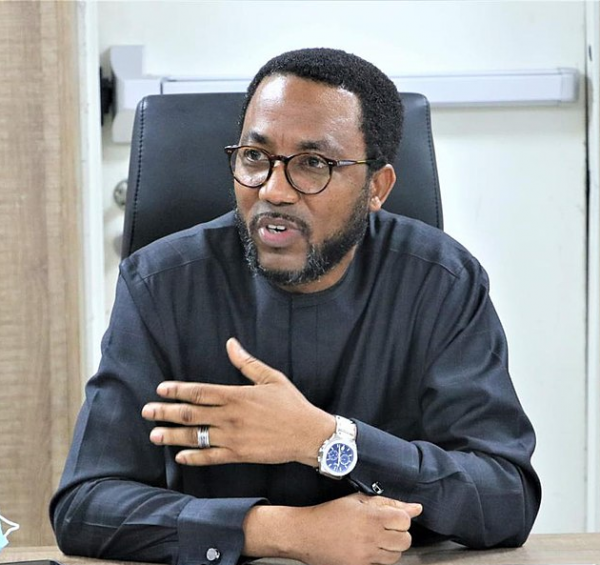Decarbonizarion: Why 800,000 Seafarers Risk Job Loss – Dr. Membere

Dr Emi Membere Otaji, is a frontline Council member of the Nigerian Chamber of Shipping, and National Vice President Nigerian Association of Chambers Of Commerce, Industry, Mines and Agriculture, (NACCIMA) He is also the Managing Director (MD) and Chairman/CEO of Elshcon Group of Companies with interest in Oil and Gas, Shipping, Healthcare and Ocean fishing. A medical doctor turned entrepreneur, and a brilliant and articulate technocrat and administrator, Dr Membere, shares his considered views on trending global issues of climatic change, and de-carbonization. In this interview with MMS Plus, the University of Lagos trained medical doctor, points out the need for Nigerian Seafarers to join their global counterpart to acquire necessary skills that will make them competitive and relevant in the decarbonization drive of the International Maritime Organization (IMO), and the reduction of carbon emission by 2050 and the use of alternative fuels, amongst others. How ready is Nigeria to queue into this global trend? Does Nigeria have the infrastructure to give the necessary training to her seafarers to meet up with IMO demand and specification?What are the low hanging fruits Nigeria and indeed port regulators must take advantage of? What is the fate of Nigeria and 800,000 global seafarers? How much difference would the CVFF have made in the decarbonization and training of seafarers? Dr.Membere provides answers to these and other issues raised in this interview. He spoke with Frank Odinukaeze. Enjoy it.
According to research commissioned by the Maritime Just Transition Task Force,as many as 800,000 seafarers serving global shipping will need up-skilling by mid 2030 s to meet the industry’s decarbonization. What measures are Nigeria taking to
queue into this programme? Do we have the required infrastructure to train our seafarers to meet up with this global demand?
Well, the issue about carbon footprint has been on the front -burner globally for some years. And the shipping industry is a big contributor to carbon emission. Globally, the shipping world is not resting on their oars. You know already the IMO position, the IMO deadline. In life you must have a target. Whether, you meet the target at the appropriate time or not. But at least, you are working with a target. IMO globally has set a target. Even though, they know that not all fingers are equal. Not all countries will meet that target. But at the same time, just as Europe and America may probably not meet the target at the same time, as with Africa, Asia and likely China. But the target is there. It’s good that 800,000 seafarers are trained. You asked, what is government doing and all that. As an operator in the industry, I know that it’s something difficult, though, not too difficult, it is something a bit challenging to achieve.
Our seafarers need to know the best practice. Whether it’s achievable in Nigeria or not, it’s the best practice. It’s like a medical doctor. He needs to know the best equipment. He needs to know the best equipment that is available for the doctor in his village or not, that’s another matter. But at least he should know that this is what my colleagues in better climes are doing, but I don’t have the equipment. So, I’m not doing it. So to that extent yes, they should know.
Now coming back to globally and Nigeria, what are the ways shipping industries contribute to the carbon footprints? What are the ways? Number one, old fossil fuel driven ships. When I mean old, old because newer ships, even though are fossil fueled, they are faster and they consume energy less.
Newer ships are faster and consume less fuel. But the older ones consume more fuel. Number two, in better climes that have begun to migrate from fossil fuel hundred percent to fossil fuel driven to a mixture of electric, diesel and other ways and means of powering the engines. So from what I said, how would you tell a ship owner to change his ship? In those countries, they intervene and give them ship funds or funds made available to the ship owner’s to borrow, to go buy newer generation ships. So the newer generation ship, even if it’s fully hundred percent diesel, but like I said they are faster. It means that there carbon emission is less? So they have that. Or there is a hybrid-diesel, electric or diesel, any other thing. It’s a hybrid. So whatever it’s ,it is cutting down emissions. We don’t have such facility here. And it will be difficult for any of the regulators to tell, don’t put this, when you know that you are not supporting ship owners to get ship money to acquire new faster fuel efficient ships.
Number three, how does the shipping industry contribute to carbon emission? I have talked about the ship, the fuel efficiency. Now, go to Marina, or go to Eko Hotel side and look beyond there and you see how many ships are waiting for berthing space at the ports. And some of them have been waiting there for weeks. What are they doing? They are burning fuel, generators steaming. This is because our port system is still not too efficient to allow for Just- In- Time (JIT) arrival of these ships. For instance, can you imagine if a plane is going from London to Lagos, and Lagos Airport is filled, no space. And the plane has to hover around Lagos for two days, three days, before it can land. But if that plane is told, please don’t come yet, if the trip from London to Lagos is 6 hours, we will give you enough notice, so you can take off just-in-time (JIT). So, what this means is that you just come in, you berth. Don’t you see that the one that could not practice just-in time, and they have to come and wait around the anchorage, emitting carbon, causing more problems and emitting more carbon into the atmosphere, with all the consequences. So that’s what we are talking about- de-carbonization the management of the port system. Then two, getting newer fuel efficient and alternate powered engine ships. You cannot do that because you don’t have the money to buy. And you are not making things easier for me. So that is that about your question.
But does it mean that seafarers in Nigeria should not learn? They should know what is the best practice. They should know things that increase carbon emission. It is the right thing to do. Our seafarers should be taught. But enforcement is another thing. At the WISTA event, we made presentations on innovation, digitalization in sustainable shipping. There are many people, many organizations including the Federal Government agencies-it is something in the front burner. At least people are talking about it. One day ,sooner than later ,implementation can come. Because some of them like I said during that day of the presentation, there are low hanging fruits. What will it take from the port management to leverage on them?
Today, most ships can be reached. Before, it was only on radio.Now there is phone, not just radio.Today there is phone and e-mail. If you tell them, look you are coming from London, and may be you are somewhere around Senegal, and you track, you can know the speed that can give your destination time and just give you a berthing space. You will reduce your speed. Instead of coming to wait at anchorage, you reduce your speed. If you reduce your speed, you reduce carbon emission because carbon emission is associated with speed in the older Vessels. So instead of coming to hang there, you just reduce your speed. What I’m saying is that those are the low hanging fruits that our management in the maritime sector can do now, without even talking about newer, more energy friendly ships. There are things that can be done on the medium term, long term. So the decision to do, is in the hands of all parties in the maritime industry. That is both government and all stakeholders. It’s not just government, like I said ,all stakeholders. We should all work as a team. I don’t want to say that it’s only government. Government being the regulator has more roles to play. Even we and other stakeholders too have roles to play. And that’s why I commend WISTA and other groups that are calling attention to the situation and solutions for the way forward.
You talked about acquiring modern ships that emit less carbon. So, what role would the Cabotage Vessel Financing Fund ( CVFF ) play in this regard?
I happen to be in the industry before the Cabotage Act was enacted. So I know about it. I contributed to the fund from day one till date. It has a lot of role. If you look at the Act, the key thing is vessel acquisition. So, when you have vessels 20-30 years old, there, that is not the intention. We should be renewing .Just like the big names: the Bobans of this world and other foreign international competitors we have. These vessels have age limit. Whether they are working or not they should be gradually phased out and replaced. So if the funds are not readily made available, it becomes a problem. The people, who enacted the law, knew that ship funding was going to be an issue, so they enacted the law; but it’s not available. Again, those are part of the low hanging fruits. It’s not just the port, as I talked about. This is also a low hanging fruit from the government or from the regulators to say look, this is money meant for this purpose. They should make it easier. The laws are clear on how to get it. We need to put our money where our mouth is, because you cannot tell me that my 20 years old vessel, I should go and charge it, when you will not give me ship fund to replace it. The older the vessel, the more difficult, the more expensive it’s to maintain.
Apart from carbon emission, the newer vessels are energy friendly. They are faster, more energy, friendly, even when they are hundred percent fossil fuel driven. So, they emit less than the older vessels, you also know that the newer vessels also have a lot of hybrid and all that. I am not even talking about hundred percent zero fossil fuel driven. I am not talking about that yet. I am not talking about smart ship yet because that is another matter. That’s extreme. Smart ship is another extreme. Smart ships just as they are now doing in other climes, they are talking about smart cars, smart trains , we are not talking about that. We are talking about man driven vessels, but it’s just that they are newer, so they burn less carbon, burn less fuel, and they are faster.
Because they are faster, they emit less. So, even to go for that one, what moral justification will a regulator have to tell me when he cannot make fund available for me to go and get 3% or 4% interest rate of my dollar fund to buy a new vessel? And I have to go to commercial bank to take 15% interest rate, and to pay back within two years. Meanwhile, my colleagues in other climes are getting 3%-4%, payable in 20 years or in 10 years. And within this period, you would have turned around the money, make their money and pay back and also make profit. But if I go to any of the commercial banks in Nigeria, the most they can give me is 3 years or 2 years. How would I get back the money? How do I pay back the loan? Even the principal, how do I get back the principal within 2-3 years? So, those are the issues. But as I said, the fact that we are saying this does not mean that the seafarers should not be taught about de-carbonization. I think climate change and de-carbonization should be taught in schools. China which is today one of the biggest emitters of carbon are really doing something drastic to reduce emission. An industrialized African countries like Nigeria, must take drastic actions also to reduce emission. Just as I talked about the medical, the fact that the best practice is not available in my country does not mean that medical students should not be taught about the best way to treat somebody with the best equipment, even though he doesn’t have it in his country or his part of the country. He should know about it. That same way, I support that seafarers in Nigeria should be taught about new technologies in de-carbonization.
The International Maritime Organization (IMO) 2018 targets of 50 per cent emission reduction by 2050,zero carbon by 2050 and de-carbonization by 2050.How feasible are these projections with regard to Nigeria and other developing nations?
The first world countries have been on this for many years and it’s a major topical issue, and they are addressing it with a lot of political will to back it. In the third world, countries, maybe because there are many other issues, economic, political, socio-economic issues they are grappling with, they have not been able to bring this issue of climate change, reduction of carbon emissions, and de-carbonization to the front burner and not given it the desired political will to drive it.
To achieve something in life, it must be SMART. It must be specific, achievable with a timeline, IMO realizing this allows various countries and, various maritime domains to grow at their pace.
We have been talking about ships emitting carbon and all that .What about other mechanical instruments used in the port ,like trucks and other equipment, don’t they also emit carbon? How do we address this?
In other climes, climate reduction or de- carbonization is very holistic and I have said that newer energy vessels, which are bigger and faster and emits less carbon. I also talked about the low hanging fruits, where the vessels don’t come around the port and then hang around and be in anchorage and steaming around and waiting to have a berthing space. The issue of Just In Time (JIT) and with these modern means of communication, the vessels can be notified “that you won’t get availability for the next two weeks” and the captain would programme his speed such that he would arrive in time. With that it also means that , he would reduce his speed, which means there would be less emissions.
Shipping is end to end, from picking the cargo to delivery of the cargo. So that’s where the freight forwarder comes in.
In some states there are multi-modal means of transportation and trucking is also part of it, like in Apapa, where you have 100 of trucks steaming because of bad roads, causing chaos. Again, if it is properly organized, trucks would be packed away just like NPA is trying to do, but still not been able to get it very right. Shipping is end-to- end. It’s not just bring the cargo and drop to stacking area in the port. From the stacking area, they are taken by other means of transportation. Just like we have in Apapa, the chaotic situation of Apapa, steaming with bad road and all clogging around the port, it’s all part of the thing.
I talked about Port 360 and MVX , they are doing digital freight forwarding, so that from the pick up of consignment to putting it in the vessel, tracking the vessel, to customs and delivery, it’s all push on a button. That is digitalized freight forwarding. So,digital freight forwarders would also help in contributing to reduce carbon emissions. Like I said, it takes a lot of political will. Looking at other problems like the socio-economic and security problems , they are in the front burner too.








